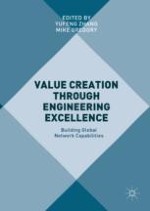2018 | OriginalPaper | Chapter
13. Engineering and the Skills Crisis in the UK and USA: A Comparative Analysis of Employer-Engaged Education
Authors : John R. Bryson, Rachel A. Mulhall, Nichola Lowe, Julianne Stern
Published in: Value Creation through Engineering Excellence
Publisher: Springer International Publishing
Activate our intelligent search to find suitable subject content or patents.
Select sections of text to find matching patents with Artificial Intelligence. powered by
Select sections of text to find additional relevant content using AI-assisted search. powered by
